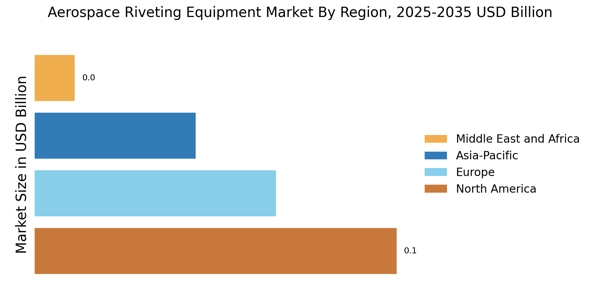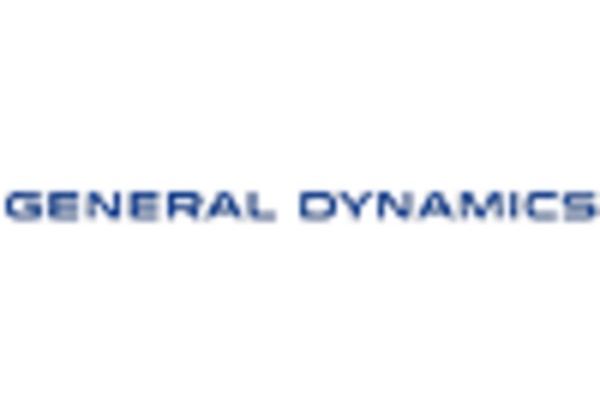Emerging Markets and Globalization
The Aerospace Riveting Equipment Market is being shaped by the emergence of new markets and the ongoing globalization of the aerospace sector. As countries invest in their aerospace capabilities, there is a growing demand for advanced riveting equipment to support local manufacturing initiatives. Emerging markets are increasingly becoming key players in the aerospace industry, leading to a diversification of supply chains and production facilities. This trend is likely to create new opportunities for manufacturers of riveting equipment, as they adapt their offerings to meet the specific needs of these markets. The globalization of the aerospace sector is expected to drive collaboration and innovation, further enhancing the demand for sophisticated riveting solutions.
Increased Demand for Lightweight Aircraft
The Aerospace Riveting Equipment Market is witnessing a heightened demand for lightweight aircraft, driven by the need for fuel efficiency and reduced emissions. As airlines and manufacturers focus on sustainability, the use of lightweight materials such as composites has become prevalent. This shift necessitates specialized riveting equipment capable of handling these materials without compromising structural integrity. The market for aerospace riveting equipment is projected to grow at a compound annual growth rate of approximately 5% over the next five years, reflecting the industry's adaptation to these new material requirements. Consequently, manufacturers are investing in innovative riveting technologies that cater specifically to the challenges posed by lightweight aircraft construction.
Regulatory Compliance and Safety Standards
The Aerospace Riveting Equipment Market is significantly influenced by stringent regulatory compliance and safety standards imposed by aviation authorities. These regulations necessitate the use of high-quality riveting equipment that meets specific performance criteria to ensure the safety and reliability of aircraft. As a result, manufacturers are compelled to invest in advanced riveting technologies that not only comply with these regulations but also enhance the overall quality of aircraft assembly. The increasing focus on safety in the aerospace sector is likely to drive the demand for state-of-the-art riveting equipment, as companies strive to maintain compliance while optimizing production processes. This trend underscores the importance of investing in reliable and efficient riveting solutions.
Growth of the Aerospace Manufacturing Sector
The Aerospace Riveting Equipment Market is poised for growth, largely due to the expansion of the aerospace manufacturing sector. With an increasing number of aircraft being produced to meet rising passenger and cargo demands, the need for efficient riveting solutions is becoming more pronounced. The aerospace manufacturing sector is expected to witness a robust growth trajectory, with projections indicating a potential increase in production rates by over 10% in the coming years. This growth is likely to stimulate investments in advanced riveting equipment, as manufacturers seek to enhance their production capabilities and maintain competitive advantages. Consequently, the demand for innovative riveting technologies is anticipated to rise, further propelling the market.
Technological Advancements in Aerospace Riveting Equipment
The Aerospace Riveting Equipment Market is experiencing a surge in technological advancements that enhance the efficiency and precision of riveting processes. Innovations such as automated riveting systems and advanced robotics are being integrated into manufacturing lines, which significantly reduce labor costs and improve production rates. For instance, the introduction of smart riveting tools equipped with sensors allows for real-time monitoring and adjustments, ensuring optimal performance. This trend is likely to drive the demand for modern riveting equipment, as manufacturers seek to remain competitive in a rapidly evolving market. Furthermore, the global aerospace sector is projected to grow, with an estimated increase in aircraft production, thereby further propelling the need for advanced riveting solutions.

















